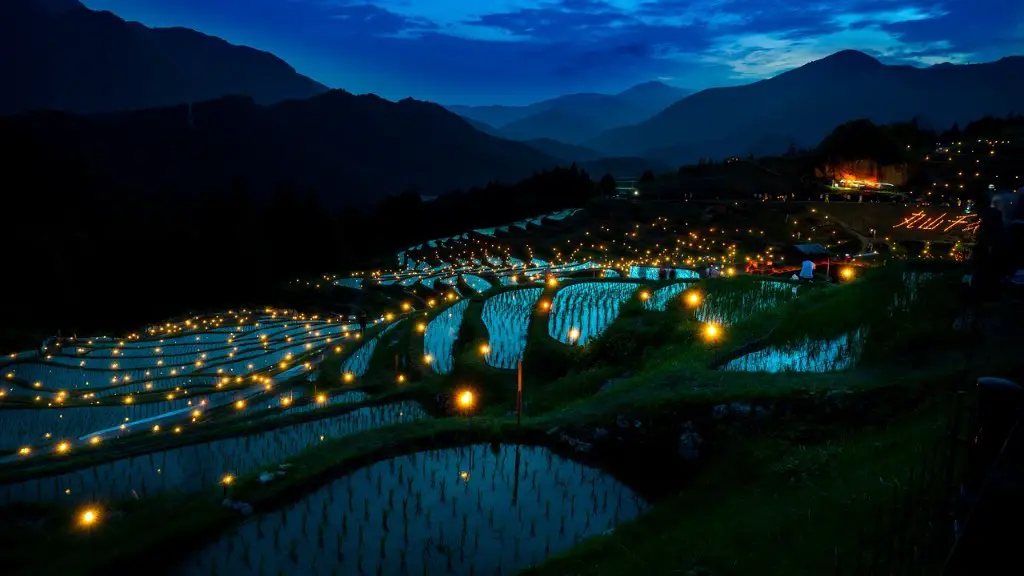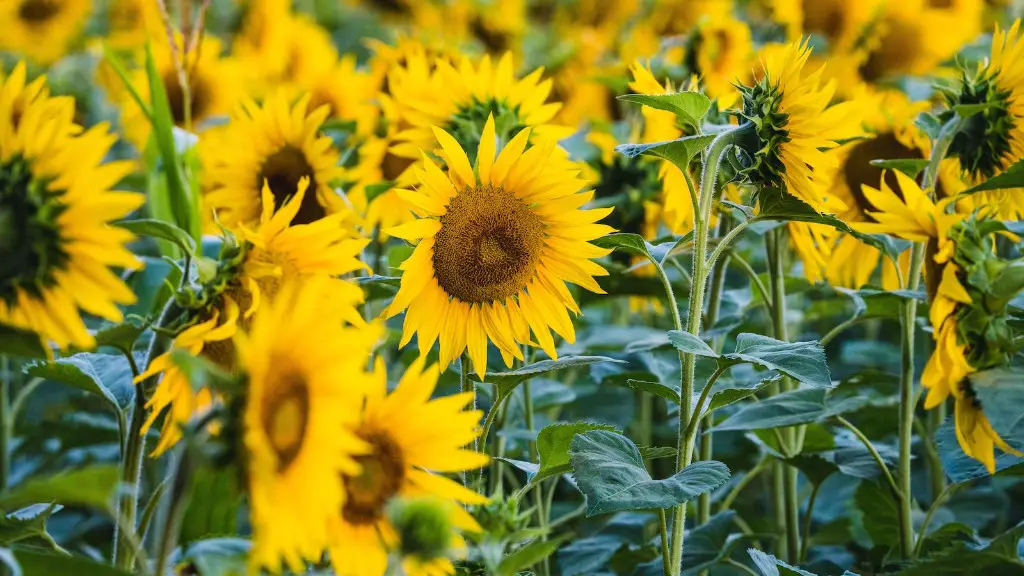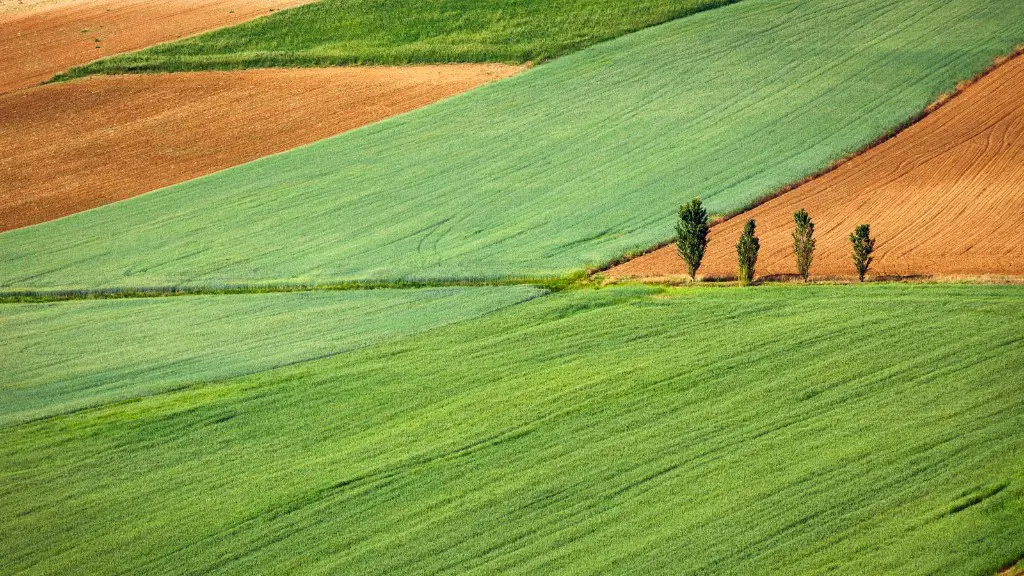Water conservation in agriculture is the practice of efficient and sustainable use of water resources in the farming sector. It involves using the scarce water resources judiciously in order to achieve high yields while promoting environmental protection. Water conservation has become increasingly important as water scarcity has become a major issue, with diminishing water supplies due to population growth, climate change, drought, and other environmental factors. Water conservation techniques help minimize water wastage and maximize its efficient use. These include water harvesting, soil moisture conservation, water-saving irrigation techniques, water recycling and reuse, wetland preservation, and careful water management.
Harvesting rainwater is an effective tool for agriculture. By capturing the rainwater which falls from the sky, farmers can make use of a precious natural resource and avoid having to collect it from rivers and groundwater. This helps conserve these other sources of water. Capturing and re-purifying rainwater also reduces evaporation and helps relieve pressure on existing water sources.
Water-saving irrigation technologies are also valuable for controlling and saving water. These include drip irrigation, subsurface irrigation, laser-guided irrigation, remote sensing and soil mapping. These technologies allow farmers to better control the amount of water applied to crops, thereby reducing water wastage, while ensuring optimum water availability.
Water recycling and reuse are other important methods to conserve water in agriculture. Through the proper installation of an irrigation system, excess water can be collected, treated, and re-used for crop production in the future. This helps farmers to save money and time, while ensuring the availability of enough water for their crops.
Wetland preservation is also critical when it comes to conserving water resources. Wetlands are a valuable source of water and help maintain the hydrologic balance. They provide key habitats for wildlife, protect the environment from flooding, and act as carbon sinks. If a wetland is damaged, it will disrupt the flow of water and may even lead to water shortages.
Water management is also key for successful water conservation. By setting up proper systems, farmers can monitor water flows, store runoff and regulate water distribution. This helps ensure an optimal water balance and helps reduce water wastage. Proper water management also helps farmers to better forecast water supplies and ensure enough water for their crops.
Designation of New Agricultural Land
Designation of new agricultural land is essential for effective water conservation. Setting aside particularly arid areas for crop production eliminates the competition between the land’s agricultural and residential uses. This is beneficial for reducing water wastage, as designated agricultural land reduces the amount of water put into residential use. Additionally, designating agricultural land contributes to wildland conservation, reducing the effects of human development and avoiding land degradation.
Optimizing Crop Variety Selection
The selection of crop varieties is an important factor for successful water conservation in agriculture. Crop varieties respond differently to moisture, light, and other environmental variables. Therefore, optimal varieties must be selected for particular climates and soils in order to reduce water wastage. Breeding and testing of crop varieties is necessary to maximize water efficiency and increase yields.
Conservation of Water Resources
Water resources must also be conserved for successful water conservation in agriculture. This includes managing and protecting water resources, such as rivers, springs, wetlands, and groundwater reservoirs. Conserving water resources helps to prevent depletion of sources, resulting in fewer water shortages, failed crops, and environmental degradation.
Productivity Potential
Water conservation in agriculture also has the potential to enhance yields and productivity. Through efficient water management, farmers can achieve high yields while reducing water wastage. Improved water efficiency can also bring economic benefits, resulting in increased income and economic stability. This is essential to secure food supplies and support economic development.


